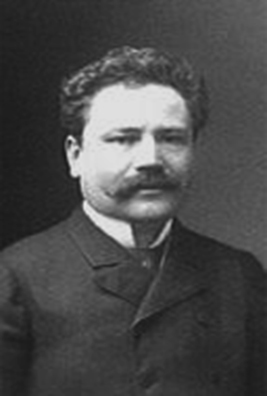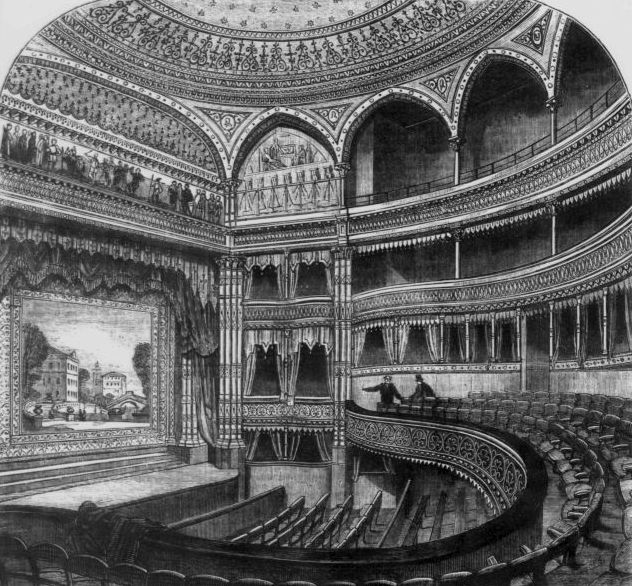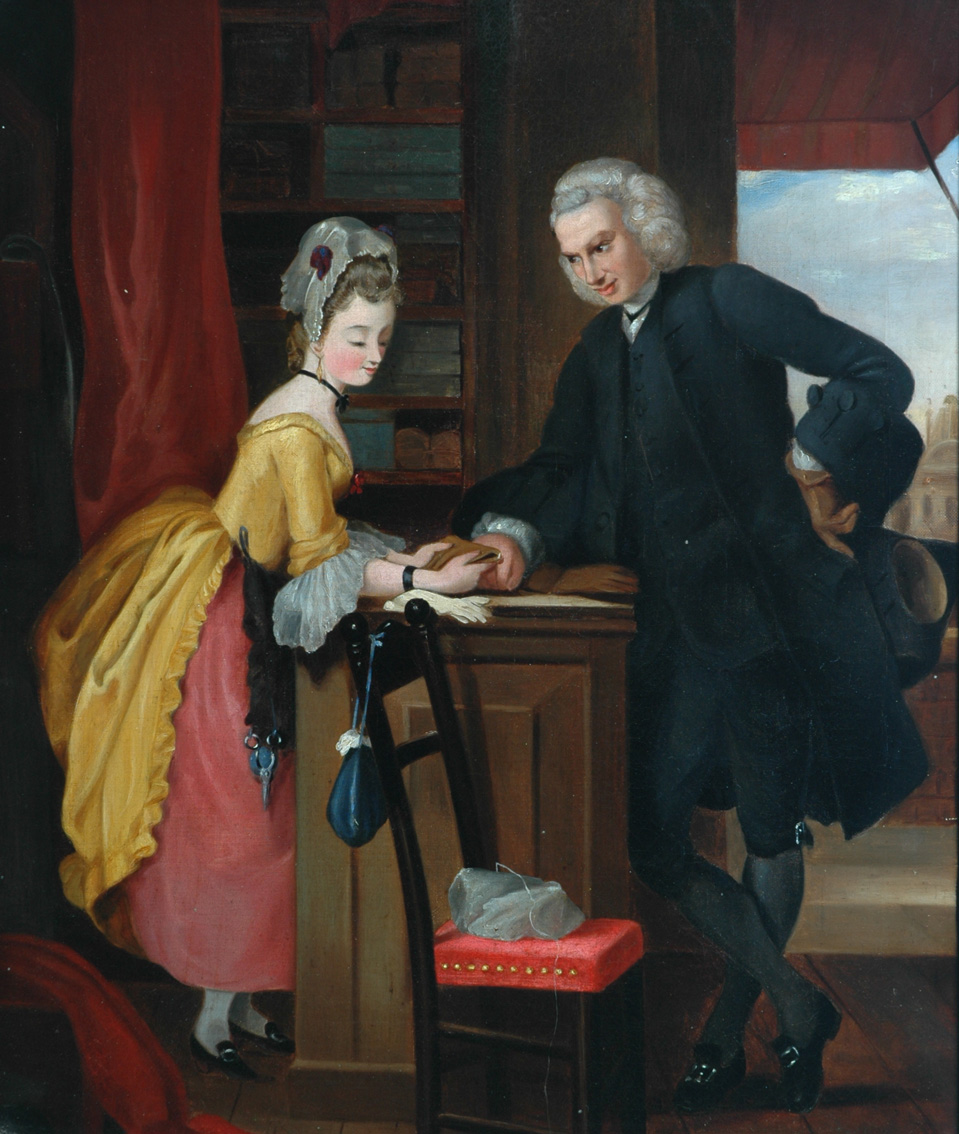|
Gabrielle Réjane
Gabrielle Réjane (), ''née'' Gabrielle Charlotte Réju (6 June 1856 – 14 June 1920), was a French actress of the late 19th and early 20th centuries. The daughter of a former actor, Réjane studied at the Conservatoire national supérieur d'art dramatique, Paris Conservatoire and made her stage debut in 1875. After eight seasons at the Théâtre du Vaudeville in increasingly prominent roles, she became leading lady at the Théâtre des Variétés, a position she combined with appearances in more substantial plays at other theatres. She became known chiefly for her roles in comedies, but made an impression in serious character parts from time to time. Her biggest success was as Catherine, the outspoken washerwoman who becomes a duchess in the historical comedy-drama ''Madame Sans-Gêne (play), Madame Sans-Gêne'' by Victorien Sardou, Sardou and Émile Moreau (playwright), Moreau. She created the role in 1893 and played it frequently for much of her career. Among her other celebra ... [...More Info...] [...Related Items...] OR: [Wikipedia] [Google] [Baidu] |
Paul Porel
Paul Porel, ''né'' Désiré Paul Parfouru (25 October 1843 – 4 August 1917), was a French actor, director and theatre manager. He was for many years closely associated with the Théâtre de l'Odéon in Paris, where he was first an actor, and then stage director, and, from December 1884 to May 1892, general director. The Odéon was at that time ranked as the second French theatre, after the Comédie Française."Paul Porel" Odéon-Théâtre de l'Europe. Retrieved 17 July 2020 Under Porel's management the Théâtre de l'Odéon was fully illuminated with electricity, in 1888. In June 1892 he applied for the post of director of the . He was unsuccessful, and in disappoint ... [...More Info...] [...Related Items...] OR: [Wikipedia] [Google] [Baidu] |
Francisque Sarcey
Francisque Sarcey (8 October 1827 – 16 May 1899) was a French journalist and dramatic critic. Career He was born in Dourdan, Essonne. After some years as schoolmaster, a job for which his temperament was ill-fitted, he entered journalism in 1858. He contributed to ''Le Figaro'', ''L'Illustration'', ''Le Gaulois'', ''Le XIXe Siècle'' and other periodicals; but his main interest was dramatic criticism, of which he had his first experience in ''L'Opinion nationale'' in 1859. In 1867 he began to contribute to ''Le Temps'' the "''feuilleton''" with which his name was associated till his death. His position as dictator of dramatic criticism was unique. He had the secret of taking the public into his confidence, and his pronouncements upon new plays were accepted as final. He was a masterly judge of acting and of stage effect; his views as to the drama itself were narrow and indifferent to artistic progress. For example, in 1896, he reviewed the premiere of Alfred Jarry's play '' ... [...More Info...] [...Related Items...] OR: [Wikipedia] [Google] [Baidu] |
The Athenaeum (British Magazine)
The ''Athenæum'' was a British literary magazine published in London, England, from 1828 to 1921. Foundation Initiated in 1828 by James Silk Buckingham, it was sold within a few weeks to Frederick Maurice and John Sterling, who failed to make it profitable. In 1829, Charles Wentworth Dilke became part proprietor and editor; he greatly extended the influence of the magazine. In 1846, he resigned the editorship and assumed that of the '' Daily News'' of London, but contributed a series of notable articles to the ''Athenaeum''. The poet and critic Thomas Kibble Hervey succeeded Dilke as editor and served from 1846 until his resignation due to ill health in 1853. Historian and traveller William Hepworth Dixon succeeded Hervey in 1853, and remained editor until 1869. Contributors George Darley was a staff critic during the early years, and Gerald Massey contributed many literary reviews – mainly on poetry – during the period 1858 to 1868. George Henry Caunter was one of the pri ... [...More Info...] [...Related Items...] OR: [Wikipedia] [Google] [Baidu] |
West End Theatre
West End theatre is mainstream professional theatre staged in the large theatres in and near the West End of London.Christopher Innes, "West End" in ''The Cambridge Guide to Theatre'' (Cambridge: Cambridge University Press, 1998), pp. 1194–1195, Along with New York City's Broadway theatre, West End theatre is usually considered to represent the highest level of commercial theatre in the English-speaking world. Seeing a West End show is a common tourist activity in London. Famous screen actors, British and international alike, frequently appear on the London stage. There are a total of 39 theatres in the West End, with the Theatre Royal, Drury Lane, opened in May 1663, the oldest theatre in London. The Savoy Theatre – built as a showcase for the popular series of comic operas of Gilbert and Sullivan – was entirely lit by electricity in 1881. Opening in October 2022, @sohoplace is the first new West End theatre in 50 years. The Society of London Theatre (SOLT) announced ... [...More Info...] [...Related Items...] OR: [Wikipedia] [Google] [Baidu] |
Gaiety Theatre, London
The Gaiety Theatre was a West End theatre in London, located on Aldwych at the eastern end of the Strand. The theatre was first established as the Strand Musick Hall in 1864 on the former site of the Lyceum Theatre. In 1868, it became known as the Gaiety Theatre and was, at first, known for music hall and then for musical burlesque, pantomime and operetta performances. From 1868 to the 1890s, it had a major influence on the development of modern musical comedy. Under the management of John Hollingshead until 1886, the theatre had early success with ''Robert the Devil'', by W. S. Gilbert, followed by many other burlesques of operas and literary works. Many of the productions starred Nellie Farren. Hollingshead's last production at the theatre was the burlesque ''Little Jack Sheppard'' (1885–86), produced together with his successor, George Edwardes. Edwardes's first show, ''Dorothy'', became a long-running hit. In the 1880s and 90s, the theatre had further success with a ... [...More Info...] [...Related Items...] OR: [Wikipedia] [Google] [Baidu] |
Who's Who (UK)
''Who's Who'' is a reference work. It is a book, and also a CD-ROM and a website, giving information on influential people from around the world. Published annually as a book since 1849, it lists people who influence British life, according to its editors. Entries include notable figures from government, politics, academia, business, sport and the arts. ''Who's Who 2022'' is the 174th edition and includes more than 33,000 people. The book is the original '' Who's Who'' book and "the pioneer work of its type". The book is an origin of the expression "who's who" used in a wider sense. History ''Who's Who'' has been published since 1849."More about Who's Who" OUP. It was originally published by Baily Brothers. Since 1897, it has been publish ... [...More Info...] [...Related Items...] OR: [Wikipedia] [Google] [Baidu] |
Jeanne Julia Bartet
Julia Bartet was the stage name of Jeanne-Julie Regnault (28 October 1854 – 18 November 1941), a French actress. After training at the Paris Conservatoire she began her professional career in 1872, and from 1880 to her retirement in 1920 she was a leading member of the Comédie-Française. Her range was wide, and she appeared in classic plays and modern drama, in comedy and tragedy. Life and career Early years Bartet was born Jeanne-Julie Regnault on 20 October 1854 in the 1st arrondissement of Paris."Notice de personne" Bibliothèque nationale de France. Retrieved 31 March 2021 She studied at the under the pr ... [...More Info...] [...Related Items...] OR: [Wikipedia] [Google] [Baidu] |
Ludovic Halévy
Ludovic Halévy (1 January 1834 – 7 May 1908) was a French author and playwright, best known for his collaborations with Henri Meilhac on Georges Bizet's ''Carmen'' and on the works of Jacques Offenbach. Biography Ludovic Halévy was born in Paris. His father, Léon Halévy (1802–1883), was a civil servant and a clever and versatile writer, who tried almost every branch of literature—prose and verse, vaudeville, drama, history—without, however, achieving decisive success in any. His uncle, Fromental Halévy, was a noted composer of opera; hence the double and early connection of Ludovic Halévy with the Parisian stage. His father had converted from Judaism to Christianity prior to his marriage with Alexandrine Lebas, daughter of a Christian architect. At the age of six, Halévy might have been seen playing in that ''Foyer de la danse'' with which he was to make his readers so familiar, and, when a boy of twelve, he would often, on a Sunday night, on his way back to the ... [...More Info...] [...Related Items...] OR: [Wikipedia] [Google] [Baidu] |
Henri Meilhac
Henri Meilhac (23 February 1830 – 6 July 1897) was a French dramatist and opera librettist, best known for his collaborations with Ludovic Halévy on Georges Bizet's ''Carmen'' and on the works of Jacques Offenbach, as well as Jules Massenet's ''Manon''. Biography Meilhac was born in the 1st arrondissement of Paris in 1830. As a young man, he began writing fanciful articles for Parisian newspapers and comédies en vaudevilles, in a vivacious boulevardier spirit which brought him to the forefront. About 1860, Meilhac met Ludovic Halévy, and their collaboration for the stage lasted twenty years. Their most famous collaboration is the libretto for Georges Bizet's ''Carmen''. However, Meilhac's work is most closely tied to the music of Jacques Offenbach, for whom he wrote over a dozen librettos, most of them together with Halévy. The most successful collaborations with Offenbach are ''La belle Hélène'' (1864), '' Barbe-bleue'' (1866), '' La Vie parisienne'' (1866), ''La Grand ... [...More Info...] [...Related Items...] OR: [Wikipedia] [Google] [Baidu] |
The Morning Post
''The Morning Post'' was a conservative daily newspaper published in London from 1772 to 1937, when it was acquired by ''The Daily Telegraph''. History The paper was founded by John Bell. According to historian Robert Darnton, ''The Morning Post'' scandal sheet consisted of paragraph-long news snippets, much of it false. Its original editor, the Reverend Sir Henry Bate Dudley, earned himself nicknames such as "Reverend Bruiser" or "The Fighting Parson", and was soon replaced by an even more vitriolic editor, Reverend William Jackson, also known as "Dr. Viper". Originally a Whig paper, it was purchased by Daniel Stuart in 1795, who made it into a moderate Tory organ. A number of well-known writers contributed, including Samuel Taylor Coleridge, Charles Lamb, James Mackintosh, Robert Southey, and William Wordsworth. In the seven years of Stuart's proprietorship, the paper's circulation rose from 350 to over 4,000. From 1803 until his death in 1833, the owner and editor of the ... [...More Info...] [...Related Items...] OR: [Wikipedia] [Google] [Baidu] |
Grisette (person)
The word grisette (sometimes spelled grizette) has referred to a French working-class woman from the late 17th century and remained in common use through the Belle Époque era, albeit with some modifications to its meaning. It derives from ''gris'' ( French for grey), and refers to the cheap grey fabric of the dresses these women originally wore. The 1694 edition of the ''Dictionnaire de l'Académie française'' described a grisette as simply "a woman of lowly condition". By the 1835 edition of the dictionary, her status had risen somewhat. She was described as: a young working woman who is coquettish and flirtatious. This usage can be seen in one of Oliver Wendell Holmes' early poems "Our Yankee Girls" (1830): the gay grisette, whose fingers touch love's thousand chords so well. ... In practice, "young working woman" referred primarily to those employed in the garment and millinery trades as seamstresses or shop assistants, the few occupations open to them in 19th century ... [...More Info...] [...Related Items...] OR: [Wikipedia] [Google] [Baidu] |




.jpg)



